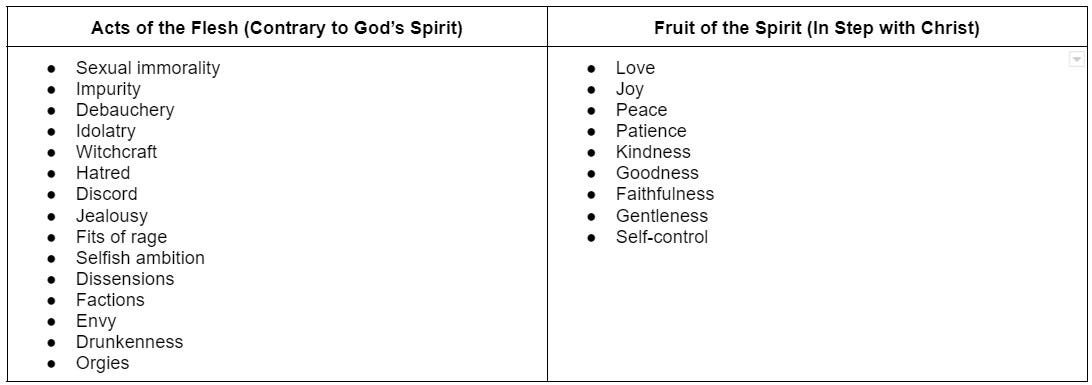Misguided "Christian" Targets That Undermine the Ways of Jesus (part 2)
Part 2: The Trump Factor
Originally published December 2022
I want to be clear that my case is not about specific political issues, perse, but to the large professing Christian swath of voters who insist on holding up Donald Trump as our hope for a religious, faith-filled America. So, my intended audience for this part is not Republicans or Democrats, but professing Evangelical Christians, or “the Church.” Trump is the logical conclusion we reach when we make the mistake of exalting toughness (see part 1) as the objective of our Christianity.
It is one thing to support Donald Trump because you agree with his immigration or economic policies, his stance on regulation, or his record of nominating certain justices to the Supreme Court. If that is your situation, then, by all means, get out and campaign and make your case. Every voter has the right to do that.
In fact, at the risk of repelling some readers, I can easily give reasons why people would have voted for Donald Trump that don’t make them racists or bigots, as they are often labeled. Many hard-working citizens felt like they kept more of their income under Trump’s presidency. Many reasonable people who are not xenophobic recognize immigration is a complicated topic. They feel that we can best address the nuanced challenges of immigration reform once our borders are made secure with more restricted access. Some voters prioritize the naming of Supreme Court justices to the highest court in the land as the chief concern when selecting a candidate, and they decided Trump was the best bet to nominate judges who were more conservative in their view of the Constitution. Some would have a politically valid point in voting for Trump based on their position regarding military spending. Small business owners probably favored his efforts against too much regulation. Ironically, one remarkable achievement of the Trump presidency that he can’t receive accolades for now due to the political climate is that we produced more COVID vaccines at an exponential rate under his leadership. Even Dr. Fauci has mentioned the credit Trump deserves because of this feat. In my opinion, these are some of the examples of legitimate justifications one could make for promoting Trump.
My point here is not with how people vote. It is directly aimed at the Evangelical Christian community, the organized church in America. Voting decisions can be made for a variety of reasons, and frankly, all candidates are deeply flawed so arguments made for or against Trump can be easily transferred to other candidates. Oftentimes, voters are left with the “lesser of two evils” to select in elections (for more on this, listen to my podcast episode, “The Elect”).
With that aspect out of the way, remember the title of this post is misguided Christian targets that undermine the way of Jesus. So, while all that may be true as to how to politically view Trump, what we should NOT do is scare faithful followers of Christ into believing that the Church is somehow at risk of collapsing without Trump, as though he will lay some moral, religious foundation for future activities in this country. The truth is the Church was dealt a devastating blow because of Donald Trump. Christianity took the hit. Jesus took the hit. And that is good for no one.
“Around half of Americans believe evangelical leaders’ support of Trump hurt the church’s credibility. One in four say evangelical support for Trump reduced their desire to participate in religion. And among evangelicals, 33 percent say their leaders’ support of Trump made personal witness to friends and family more difficult.”1
godversusreligion.com
Christianity Today reported fascinating results of surveys after the 2020 election. It is one more occasion where the Evangelicals’ view of themselves contrasts with how others see them. For example, among self-identified Evangelicals, about one in four (27%) say they are more likely to make donations to their church as a result of the way their pastor supported Trump. One in three (30%) is more likely to attend church services for the same reason.2
The majority of evangelicals (57%) believe their support of Trump in 2020 “showed moral courage to try and achieve policies and actions consistent with evangelical Christian values,” and more than a third of Americans overall agreed.
As I stated at the outset, if someone thinks taking a stand is a measure of true Christianity, then Donald Trump becomes the logical conclusion for their religious commitment, regardless of the manner in which the message is proclaimed.
But the flip side reveals a big problem for the Church. Half of those surveyed who do not identify as Evangelicals said that Evangelical leaders’ support of President Trump hurt the credibility of the Church. Interestingly, 43 percent of those within the Evangelical Church agreed!3
“The result may be even more catastrophic for the gospel…because the Christian nationalism of the contemporary Republican Party is even further removed from historic evangelicalism—and certainly further removed from historic Christian principles…”
Matt Lewis (quoting Daniel K. Williams)4
Part of the point is that Evangelical Christianity may have always gotten a bad rap from outside the movement in the past. Still, Ronald Reagan’s courting of the religious right or George W. Bush’s “compassionate conservatism” campaign did not do damage to the Church as Trump has done. As I have noted before on this Substack, Barna reported on evidence of pastors leaving the ministry in droves or at least wanting to do so, and one of the reasons given by many of them was the struggle to navigate the political division within their congregations in response to Trump.
It may sound foolish to say after everything I have cited above, but the problem wasn’t Trump. The problem was the Church. Quite frankly, Trump did not change who he was throughout the process. What is telling, to me, is not that Trump took advantage of the Christian church, but that he knew he could do it so easily. He announced it publicly from the beginning.
Remember when he said, "I could stand in the middle of Fifth Avenue and shoot somebody, and I wouldn't lose any voters, OK?" Rally after rally with numerous Christians in attendance proved him right. He could say things totally antithetical to the gospel of Jesus and be met with cheering. People began not only watching Trump but the Church and their fervor when it came to him. And people got confused quickly.
Religious leaders who had condemned Clinton and others for any kind of sexual misconduct heard Trump’s recorded comments from years earlier about grabbing women by the p*#%y and excused them almost immediately by, you guessed it, quoting Scripture. "Everyone has sinned and fallen short," they said. There has been a considerable amount of pleading to forgive a man who never asks for it. To be fair, some complained that his behavior was vulgar and unacceptable.5
In the New Testament, there is a passage (Galatians 5) in which the apostle Paul sets out two distinct character profiles. One is “of the flesh” and contrary to the Spirit of God. The other is “in step with the Spirit” and demonstrates evidence of Christlikeness. Both are the fruit that is on display for the world to know who is following the ways of Jesus and who is not.
Paul concludes the Galatians 5 lesson with the reminder, “Let us not become conceited, provoking and envying each other” (verse 26). As president, Donald Trump tweeted roughly ten times a day! He took to Twitter approximately 11,000 times in his first three years in office.6 In most cases, he was attacking someone or praising himself. What I find interesting is not actually the negativity or narcissism of it all but the impulsivity. It is similar to juvenile behaviors on social media that I deal with as a high school administrator.
Many people can misconstrue Donald Trump’s actions or categorize his supporters in unfair ways, but the Tweets and the public comments and speeches are all squarely on him. These are the words straight from the horse’s mouth if you will, and when evaluated by the criteria in the Galatians 5 list above, let’s just say a clear pattern emerges. His tendency against the Spirit is not exceptional but habitual.
Now, before anyone says, “But we are all human. We all make mistakes. No one is perfect. We’ve all done things in the ‘flesh’ column.” Of course, that is true! I, unfortunately, do those kinds of things frequently. Admitting that is worlds apart from endorsing that consistent pattern as the foundation of religious value in this country. As a pattern, do his Tweets promote love or peace? Do his comments usually demonstrate patience or gentleness? Does his tone generally communicate joy and self-control?
It is accurate that other politicians are conceited, immoral, selfish, and jealous. There are plenty of others who sow discord. Trump is not alone. And I say again, in conclusion, that is why this is not a post aimed at Trump or Republicans or political leaders. It is aimed at the Church. We cannot knowingly promote antichrist behaviors, actions that go against the Spirit of God, as anything else, especially twisting them to somehow be “Christian.”
This does not just apply to Trump. It goes for anyone, which is why we should be careful to hold up flawed individuals, whether they be politicians or pastors, as our examples of great faith and moral character. It is better to hold up Jesus. Highlight the fruit of the Spirit when we see it. Emphasize His grace. That, my friends, should suffice just fine.
https://godversusreligion.com/trumps-effect-on-evangelical-churches-lingers-good-or-bad/
https://www.christianitytoday.com/news/2021/november/trump-effects-evangelical-churches-witness-survey-election.html
https://www.christianitytoday.com/news/2021/november/trump-effects-evangelical-churches-witness-survey-election.html
https://news.yahoo.com/evangelicals-trump-obsession-tarnished-christianity-090640339.html?fr=sycsrp_catchall
https://abcnews.go.com/Politics/trump-caught-tape-vulgar-language-women/story?id=42655874
https://www.nytimes.com/interactive/2019/11/02/us/politics/trump-twitter-presidency.html



